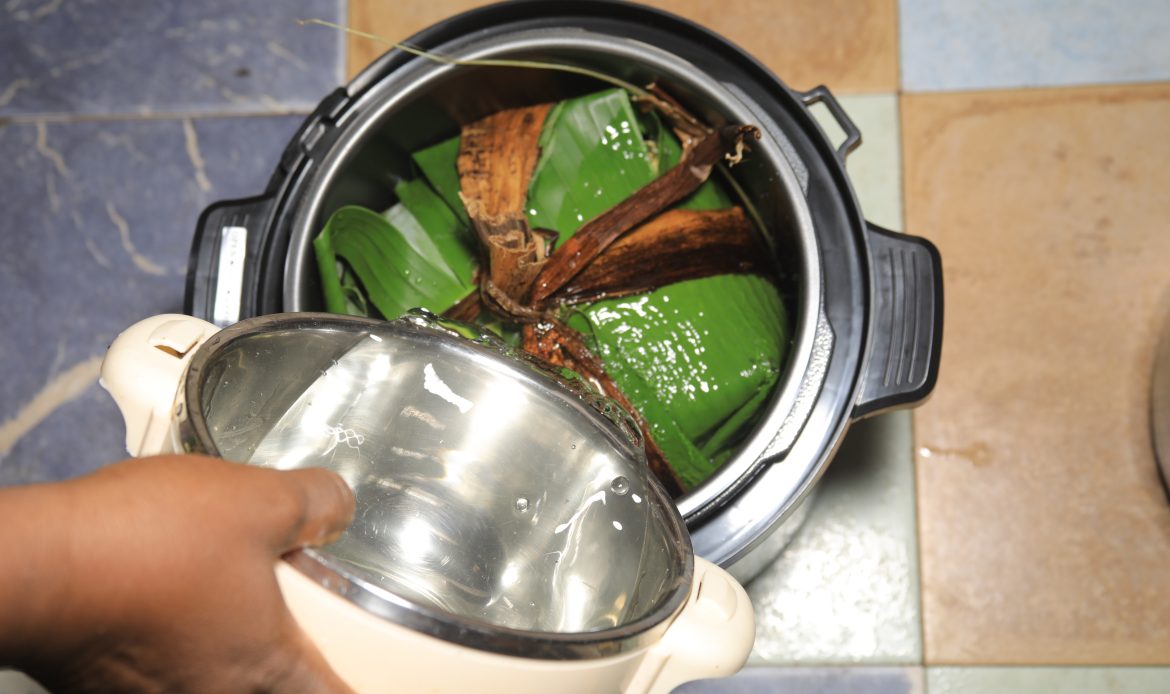CREEC with support from MECs distributed power hubs and Electric Pressure Cookers (EPCs) to different households in Kigulu Matugga and Kirowooza Mukono to help bridge the gap between e-cooking technology and off grid/weak grid communities.
As part of the project outputs, the team conducted a co-creation workshops in Kigulu to interact with the community and participants to gain more insight on the challenges, opportunities and experiences the participants encountered while using power hub systems for cooking activities.
Currently, uptake of e-cooking has been primarily in urban areas where people are connected to the grid, overlooking the needs of off-grid communities. The main objective of the engagement in a kigulu (off grid community) was to assess the feasibility of e-cooking in off-grid/rural areas using the battery supported systems.
CREEC Makerere also carried out another co-creation workshop on electricity based cooking in Kirowooza village Mukono which is a weak grid area. During the workshop, CREEC explored people’s ideas, opinions, thoughts and experiences on the use of the power hubs that support ecooking in such weak grid areas. The essence of the engagement was to increase adoption of ecooking as we unpack the drivers of ecooking under weak grid areas. This will help reveal user satisfaction, reliability, safety and convenience.
Weak grid areas are areas with unstable power supply. These are hybrid power hubs that can be charged by both AC-(electricity) and DC-(solar). Participants have had these power hubs since 2022.
CREEC has been implementing these two pilot projects on battery argumented systems (DC power hubs and AC power hubs). The DC version was designed to be charged by solar PV while the AC version was designed to be charged by the grid, with the energy storage designed to mitigate high power draws and blackouts when cooking.

How To Manage eCooking
Based on studies carried out, the average household uses charcoal as the main cooking fuel and LPG as a backup. Households on average use a double bag of charcoal per month which amounts to UGX 160,000. 6kg LPG cylinders are the most commonly used as backup in households. This costs approximately UGX 60,000 per month. However, adoption of clean cooking technologies like EPCs significantly reduces the cost to approximately UGX 36,000.
https://mecs.org.uk/wp-content/uploads/2022/04/Uganda-eCookbook-.pdf
Focused studies by CREEC (Centre for Research in Energy and Energy Conservation) show that the EPC uses approximately 0.3 kWh to prepare a meal (two dishes) which amounts to 300 shillings. In a day’s cooking, the EPC used approximately 1,200 shillings of energy therefore amounting to UGX 36,000 per month.
A significant difference in the fuel prices is noticeable however, the grid at times faces power blackouts and brownouts therefore, a backup fuel to use besides the EPC would be the Ethanol stove.
Some of the ways to manage eCooking and make it sustainable in the country include;
1. Invest in energy-efficient cooking appliances: One of the keyways to manage E-cooking in Uganda is to invest in energy-efficient cooking through adoption of modern energy cooking services which are affordable, reliable and sustainable. For example, the electric pressure cooker. These consume less energy and help reduce emissions, making them a more sustainable option for cooking.
2. Through productive use of renewable energy sources: In Uganda, there is great potential for renewable energy sources such as solar, wind, and hydropower. By utilizing these renewable energy sources for cooking and lighting, you can reduce your carbon footprint and contribute to a cleaner environment. These EPCS do not produce harmful emissions.
3. Promote clean cooking practices: Encourage clean cooking technologies such as using efficient improved cookstoves and the use of EPCs. This will help reduce indoor air pollution which improves the health of the people involved in cooking.
4. Educate the community: Raise awareness about the benefits of E-cooking and educate the community on how to adopt sustainable cooking practices. This can be done through workshops, training sessions, or community outreach programs.
5. Support policy initiatives: Continuously advocate for policies that promote E-cooking and sustainable cooking practices in Uganda. This could include incentives for the adoption of renewable energy technologies or regulations to phase out the use of polluting cooking fuels.
By following these tips, you can effectively manage E-cooking in Uganda and contribute to a cleaner, healthier environment for all.
Individuals in Uganda can access information on energy-efficient cooking through various channels. They can visit government websites that provide information on sustainable practices and E-cooking initiatives. They can also attend workshops or training sessions organized by NGOs or renewable energy companies to learn about efficient cooking options. Additionally, individuals can reach out to local retailers or distributors who specialize in selling eco-friendly cooking appliances for more information on available options in the market.
